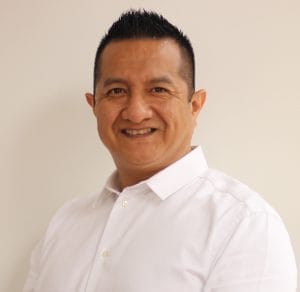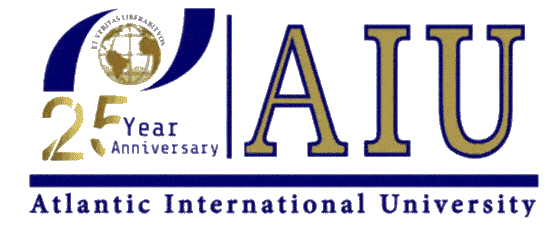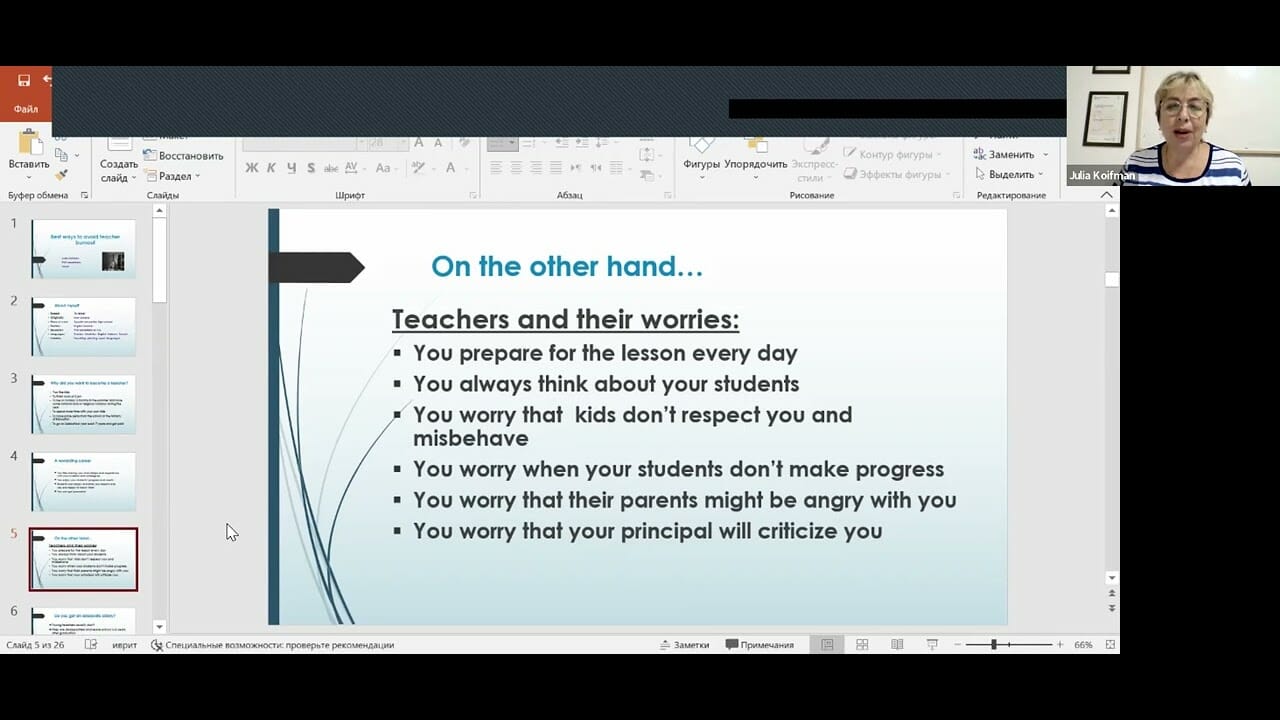- RESEARCHDistance Learning at AIU is enhanced by vast academic resources and innovative technologies build into the Virtual Campus: Hundreds of self-paced courses with video lectures and step by step lessons, thousands of optional assignments, 140,000 e-books, the Social Media & Networking platform allowing collaboration/chat/communications between students, and MYAIU develop students holistically in 11 areas beyond just academics.
- PROGRAMS OFFERED
- Areas of Study
- Courses and Curriculum
- Open Courses
- Register for a Program
- Certificate Program
-
Associate program
- Associate in Actuarial Science
- Associate in Addiction Counseling
- Associate in Agriculture Food And Resources
- Associate in Animal Science
- Associate in Anti Terrorism Security
- Associate in Behavior Analysis In Special Education
- Associate in Bioethics
- Associate in Biosystems
- Associate in Blockchain Technology & Digital Currency
- Associate in Business Communication
- Associate in Business Management
- Associate in Chemistry
- Associate in Climatology
- Associate in Cloud Computing
- Associate in Computer Engineering
- Associate in Computer Programming
- Associate in Computer Science
- Associate in Criminal Justice
- Associate in Culinary Arts
- Associate in Cultural Theological Communication
- Associate in Cybersecurity And Hacking
- Associate in Data Communication And Networking
- Associate in Database Administrator
- Associate in Early Childhood Education
- Associate in Ecotechnology
- Associate in Ecotourism
- Associate in Education
- Associate in Educational Technology
- Associate in Electric Vehicle Engineering
- Associate in Electrochemical Engineering
- Associate in Electronic Engineering
- Associate in English Literature
- Associate in Environmental Science
- Associate in eVTOL Engineering
- Associate in Fashion Design
- Associate in Fine Arts
- Associate in Foreign Trade
- Associate in Genetic Engineering
- Associate in Geography
- Associate in Geology
- Associate in Geophysical Sciences
- Associate in Graphic Design
- Associate in Health Sciences
- Associate in History
- Associate in Human Resources
- Associate in Integrated Water Management
- Associate in International Finance
- Associate in International Marketing
- Associate in Islamic Studies
- Associate in Kinesiology And Physiotherapy
- Associate in Library technology
- Associate in Linguistics
- Associate in Management
- Associate in Management Information Systems
- Associate in Maritime Management
- Associate in Metallurgy
- Associate in Micro and Multimode Grid Design
- Associate in Modern Power and Energy Systems
- Associate in Multimedia Design and Digital Art
- Associate in Nutrition
- Associate in Oil Gas And Energy Engineering
- Associate in Operations Management
- Associate in Optoelectronic Systems
- Associate in Organizational Development
- Associate in Organizational Diversity
- Associate in Pedagogical Training For Professionals
- Associate in Physical Culture And Sports
- Associate in Physics
- Associate in Public Health
- Associate in Quantum Computing Technology
- Associate in Radio And Television Production
- Associate in Scenography
- Associate in Social Media Marketing
- Associate in Sociology
- Associate in Sports Marketing
- Associate in Sports Psychology
- Associate in Sustainable Design and Construction
- Associate in Sustainable Materials Science
- Associate in Sustainable Natural Resources Management
- Associate in Sustainable Tourism
- Associate in Synthetic Biology
- Associate in Virtual Archival Science
- Associate of Adult Education
- Associate of Advertising
- Associate of Agriculture
- Associate of American History
- Associate of Biology
- Associate of Chemical Engineering
- Associate of Civil Engineering
- Associate of Communications
- Associate of Construction Management
- Associate of Economics
- Associate of Educational Administration
- Associate of Electrical Engineering
- Associate of Finance
- Associate of Healthcare Administration
- Associate of Human Resources Management
- Associate of Humanities
- Associate of Hydrology
- Associate of Industrial Engineering
- Associate of Information Systems
- Associate of Information Technology
- Associate of Interior Design
- Associate of International Relations
- Associate of Journalism
- Associate of Legal Studies
- Associate of Logistics
- Associate of Marketing
- Associate of Mass Media and Communication
- Associate of Mathematics
- Associate of Mechanical Engineering
- Associate of Mining Engineering
- Associate of Music
- Associate of Nutrition Science
- Associate of Philosophy
- Associate of Physical Education
- Associate of Political Science
- Associate of Project Management
- Associate of Psychology
- Associate of Renewable Energy
- Associate of Software Engineering
- Associate of Sport Science
- Associate of Statistics
- Associate of Strategic Management
- Associate of Technical Writing
- Associate of Telecommunications
- Associate of Theater
- Associate of Theology
- Associate of Tourism Planning and Development
- Associate of Travel and Tourism
- Associate of Unmanned Areal Systems Engineering
- Associates in Artificial Intelligence
- Associates in Engineering Systems
- Associates in Physical Anthropology
- Associates in Social Sciences
- Associates in Sociocultural Anthropology
- Associates in Systems Engineering
- Associates of Accounting
- Associates of Anthropology
- Associates of Archeology
- Associates of Architecture
- Associates of Art History
- Associates of Banking and Finance
- Associates of Business Administration
- Associates of Public Administration
- Associates of Science
- Associates of Urban Planning
- Associates of Visual and Performing Arts
- Micro and Multimode Grid Design
-
Bachelor Program
- Bachelor in Data Communication and Networking
- Bachelor in Actuarial Science
- Bachelor in Addiction Counseling
- Bachelor in Agriculture, Food and Resources
- Bachelor in Animal Science
- Bachelor in Anti Terrorism Security
- Bachelor in Artificial Intelligence
- Bachelor in Arts in Cultural Theological Communication
- Bachelor in Autonomous Vehicle Technology
- Bachelor in Bachelor of Bioethics (BA)
- Bachelor in Behavior Analysis in Special Education
- Bachelor in Bibliotechnology
- Bachelor in Biosystems
- Bachelor in Blockchain Technology & Digital Currency
- Bachelor in Business Communication
- Bachelor in Business Management
- Bachelor in Chemistry
- Bachelor in Cloud Computing
- Bachelor in Computer Science
- Bachelor in Criminal Justice
- Bachelor in Culinary Arts
- Bachelor in Cybersecurity and Hacking
- Bachelor in Database Administrator (BS)
- Bachelor in Ecotechnology
- Bachelor in Ecotourism
- Bachelor in Education (B.Ed, BS)
- Bachelor in Educational Technology
- Bachelor in Electric Vehicle Engineering
- Bachelor in Electrochemical Engineering
- Bachelor in English Literature
- Bachelor in eVTOL Engineering
- Bachelor in Fashion Design (BA)
- Bachelor in Fine Arts
- Bachelor in Foreign Trade
- Bachelor in Genetic Engineering
- Bachelor in Geology
- Bachelor in Geophysical Sciences
- Bachelor in Graphic Design
- Bachelor in Health Sciences
- Bachelor in Integrated Water Management
- Bachelor in International Finance
- Bachelor in International Marketing
- Bachelor in Islamic Studies
- Bachelor in Kinesiology and Physiotherapy
- Bachelor in Linguistics
- Bachelor in Management
- Bachelor in Metallurgy
- Bachelor in Micro and Multimode Grid Design
- Bachelor in Modern Power and Energy Systems
- Bachelor in Multimedia Design and Digital Art
- Bachelor in Nutrigenetics
- Bachelor in Operations Management (BA)
- Bachelor in Optoelectronic Systems
- Bachelor in Organizational Development
- Bachelor in Organizational Diversity
- Bachelor in Physical Anthropology
- Bachelor in Physical Culture And Sports
- Bachelor in Public Relations
- Bachelor in Quantum Computing Technology
- Bachelor in Radio And Television Production
- Bachelor in Scenography
- Bachelor in Social Media Marketing
- Bachelor in Social Sciences
- Bachelor in Sociocultural Anthropology
- Bachelor in Sport Management
- Bachelor in Sports Marketing
- Bachelor in Sports Psychology
- Bachelor in Sustainable Design and Construction
- Bachelor in Sustainable Materials Science
- Bachelor in Sustainable Natural Resources Management
- Bachelor in Sustainable Tourism
- Bachelor in Synthetic Biology
- Bachelor in Virtual Archival Science
- Bachelor of Adult Education
- Bachelor of Advertising
- Bachelor of Animation
- Bachelor of Art History
- Bachelor of Biohacking and Nutrigenomics
- Bachelor of Educational Administration
- Bachelor of Healthcare Administration
- Bachelor of Human Resources Management
- Bachelor of Humanities
- Bachelor of Hydrology
- Bachelor of Information Technology
- Bachelor of Mass Media and Communication
- Bachelor of Mathematics
- Bachelor of Philosophy
- Bachelor of Physical Education
- Bachelor of Project Management
- Bachelor of Public Administration
- Bachelor of Software Engineering
- Bachelor of Sport Science
- Bachelor of Sports Science
- Bachelor of Statistics
- Bachelor of Strategic Management
- Bachelor of Technical Writing
- Bachelor of Theater
- Bachelor of Theology
- Bachelor of Tourism Planning and Development
- Bachelor of Travel and Tourism
- Bachelor of Unmanned Areal Systems Engineering
- Bachelor of Urban Planning
- Bachelor of Visual and Performing Arts
- Bachelor of Web Design
- Bachelors in Energy Storage and Battery Technology
- Bachelors in Accounting
- Bachelors in Accounting & Finance
- Bachelors in Agronomy Engineering
- Bachelors in Anthropology
- Bachelors in Architecture
- Bachelors in Automotive Engineering
- Bachelors in Banking and Finance
- Bachelors in Biology
- Bachelors in Business Administration
- Bachelors in Chemical Engineering
- Bachelors in Civil Engineering
- Bachelors in Communications
- Bachelors in Computer Engineering
- Bachelors in Criminal Justice
- Bachelors in Early Childhood Education
- Bachelors in Economics
- Bachelors in Electrical Engineering
- Bachelors in Electronic Engineering
- Bachelors in Engineering
- Bachelors in Environmental Science
- Bachelors in Finance
- Bachelors in Finance and Banking
- Bachelors in Health Sciences
- Bachelors in History
- Bachelors in Hospitality Management
- Bachelors in Human Resources
- Bachelors in Industrial Engineering
- Bachelors in Information Systems
- Bachelors in Interior Design
- Bachelors in International Business
- Bachelors in International Relations
- Bachelors in Journalism
- Bachelors in Legal Studies
- Bachelors in Logistics
- Bachelors in Marketing
- Bachelors in Mechanical Engineering
- Bachelors in Mining Engineering
- Bachelors in Music
- Bachelors in Nutrition
- Bachelors in Oil Gas and Energy Engineering
- Bachelors in Pedagogy
- Bachelors in Physics
- Bachelors in Political Science
- Bachelors in Psychology
- Bachelors in Public Health
- Bachelors in Renewable Energy
- Bachelors in Sociology
- Bachelors in Systems Engineering
- Bachelors in Telecommunications
- Bachelors in Zoology
-
Doctorate Program
- DBA – Doctor of Business Administration
- Doctor | in Actuarial Science
- Doctor | in Agriculture Food And Resources
- Doctor | in Animal Science
- Doctor | in Biosystems
- Doctor | in Cultural Theological Communication
- Doctor | in Cybersecurity And Hacking
- Doctor | in Early Childhood Education
- Doctor | in Ecotechnology
- Doctor | In Ecotourism
- Doctor | In Educational Technology
- Doctor | In Electronic Engineering
- Doctor | In Foreign Trade
- Doctor | of Biology (PhD)
- Doctor in Addiction Counseling
- Doctor in Behavior Analysis In Special Education
- Doctor in Bibliotechnology
- Doctor in Business Management
- Doctor in Data Communication And Networking
- Doctor of Adult Education
- Doctor of Agriculture
- Doctor of American History
- Doctor of Animation
- Doctor of Anthropology
- Doctor of Archaeology
- Doctor of Architecture (Ph.D.)
- Doctor of Art History
- Doctor of Artificial Intelligence
- Doctor of Autonomous Vehicle Technology
- Doctor of Biohacking and Nutrigenomics
- Doctor of Business Management (DBM)
- Doctor of Civil Engineering (D.Sc)
- Doctor of Cloud Computing
- Doctor of Economics (PhD)
- Doctor of Educational Administration (PhD)
- Doctor of Electric Vehicle Engineering
- Doctor of Electrical Engineering (D.Sc, PhD)
- Doctor of Electrochemical Engineering
- Doctor of Engineering Systems (D.Sc)
- Doctor of eVTOL Engineering
- Doctor of Finance (PhD)
- Doctor of Humanities
- Doctor of Hydrology
- Doctor of Industrial Engineering (D.Sc)
- Doctor of International Relations (D.Sc)
- Doctor of Legal Studies (PhD)
- Doctor of Logistics
- Doctor of Mass Media and Communication
- Doctor of Mechanical Engineering (D.Sc)
- Doctor of Micro and Multimode Grid Design
- Doctor of Mining Engineering
- Doctor of Music
- Doctor of Nutrition Science
- Doctor of Optoelectronic Systems
- Doctor of Project Management (PhD)
- Doctor of Public Administration
- Doctor of Public Health (PhD, D.Sc)
- Doctor of Quantum Computing
- Doctor of Renewable Energy
- Doctor of Sociology (PhD, D.Sc)
- Doctor of Software Engineering
- Doctor of Sport Management
- Doctor of Sport Science
- Doctor of Statistics
- Doctor of Technical Writing
- Doctor of Telecommunications (D.Sc)
- Doctor of Theater
- Doctor of Tourism Planning and Development
- Doctor of Travel and Tourism
- Doctor of Unmanned Aerial Systems Engineering
- Doctor of Visual and Performing Arts
- Doctor of Web Design
- Doctoral Degree Programs
- Doctoral in International Finance
- Doctorate in Accounting
- Doctorate in Actuarial Science
- Doctorate in Adult Counseling
- Doctorate in Advertising
- Doctorate in Agriculture Food And Resources
- Doctorate in Animal Science
- Doctorate in Anti Terrorism Security
- Doctorate in Behavior Analysis In Special Education
- Doctorate in Bibliotechnology
- Doctorate in Bioethics
- Doctorate in Biosystems
- Doctorate in Business Administration (DBA, PhD)
- Doctorate in Business Communication
- Doctorate in Business Management
- Doctorate in Chemical Engineering (D.Sc)
- Doctorate in Chemistry
- Doctorate in Clinical Nutrition
- Doctorate in Communication Online (D.Sc)
- Doctorate in Computer Engineering
- Doctorate in Computer Science
- Doctorate in Conflict Resolution & Peace Building
- Doctorate in Criminal Justice
- Doctorate in Culinary Arts
- Doctorate in Cultural Theological Communication
- Doctorate in Cyber Security & Hacking
- Doctorate in Data Communication And Networking
- Doctorate in Digital Marketing
- Doctorate in Early Childhood Education
- Doctorate in Ecotechnology
- Doctorate in Ecotourism
- Doctorate in Education
- Doctorate in Educational Technology
- Doctorate in Electronic Engineering
- Doctorate in Environmental Science
- Doctorate in Fashion Design
- Doctorate in Fine Arts
- Doctorate in Foreign Trade
- Doctorate in Genetic Engineering
- Doctorate in Geophysical Sciences
- Doctorate in Global Health
- Doctorate in Health Sciences
- Doctorate in Healthcare Administration Programs (PhD)
- Doctorate in Hospital Administration
- Doctorate in Human Resource Management (PhD)
- Doctorate in Human Resources
- Doctorate in Information Systems (D.Sc)
- Doctorate in Information Technology (D.Sc)
- Doctorate in Integrated Water Management
- Doctorate in Interior Design (PhD)
- Doctorate in International Marketing
- Doctorate in International Relations
- Doctorate in Islamic Studies
- Doctorate in Journalism (PhD)
- Doctorate in Kinesiology & Physiotherapy
- Doctorate in Linguistics
- Doctorate in Management
- Doctorate in Maritime Management
- Doctorate in Marketing (PhD)
- Doctorate in Mathematics
- Doctorate in Metallurgy
- Doctorate in Modern Power and Energy Systems
- Doctorate in Multimedia Design and Digital Art
- Doctorate in Oil Gas And Energy Engineering
- Doctorate in Organizational Development
- Doctorate in Organizational Diversity
- Doctorate in Pedagogical Training For Professionals
- Doctorate in Physical Anthropology
- Doctorate in Physical Culture And Sports
- Doctorate in Physical Education (D.Sc)
- Doctorate in Political Science
- Doctorate in Psychology (PhD, DPsy)
- Doctorate in Radio And Television Production
- Doctorate in Scenography
- Doctorate in Security Management
- Doctorate in Social Media Marketing
- Doctorate in Sociocultural Anthropology
- Doctorate in Sports Management
- Doctorate in Sports Marketing
- Doctorate in Sports Psychology
- Doctorate in Strategic Leadership
- Doctorate in Strategic Management
- Doctorate in Sustainable Design and Construction
- Doctorate in Sustainable Materials Science
- Doctorate in Sustainable Natural Resources Management
- Doctorate in Sustainable Tourism
- Doctorate in Synthetic Biology
- Doctorate in Virtual Archival Science
- Doctorate of Theology
- DS – Doctorate in Science
- Online Doctorate in Health Administration
- Online Doctorate in Hospitality
- Online Doctorate in Philosophy
- Postdoctoral in Bioethics
- School of Social and Human Studies
-
Master Program
- Master in Actuarial Science
- Master in Addiction Counseling
- Master in Agriculture Food And Resources
- Master in Animal Science
- Master in Anti Terrorism Security
- Master in Autonomous Vehicle Technology
- Master in Behavior Analysis In Special Education
- Master in Bibliotechnology
- Master in Bioethics
- Master in Biosystems
- Master in Blockchain Technology and Digital Currency
- Master in Business Communication
- Master in Business Management
- Master in Chemistry
- Master in Climatology
- Master in Cloud Computing
- Master in Computer Programming
- Master in Criminal Justice
- Master in Culinary Arts
- Master in Cultural Theological Communication
- Master in Cybersecurity And Hacking
- Master in Data Communication And Networking
- Master in Database Administrator
- Master in Early Childhood Education
- Master in Ecotechnology
- Master in Ecotourism
- Master in Educational Technology
- Master in Electric Vehicle Engineering
- Master in Electronic Engineering
- Master in Energy Storage and Battery Technology
- Master in Engineering Systems (MS)
- Master in Environmental Science
- Master in eVTOL Engineering
- Master in Fashion Design
- Master in Fine Arts
- Master in Foreign Trade
- Master in Geography
- Master in Geophysical Sciences
- Master in Graphic Design
- Master in Health Sciences
- Master in History
- Master in Industrial Engineering
- Master in Integrated Water Management
- Master in International Finance
- Master in Islamic Studies
- Master in Kinesiology And Physiotherapy
- Master in Linguistics
- Master in Management
- Master in Management Information Systems
- Master in Mass Media and Communication
- Master in Metallurgy
- Master in Micro and Multimode Grid Design
- Master in Microbiology
- Master in Modern Power and Energy Systems
- Master in Multimedia Design and Digital Art
- Master in Nutritional Science
- Master in Oil Gas And Energy Engineering
- Master in Organizational Development
- Master in Organizational Diversity
- Master in Pedagogical Training For Professionals
- Master in Philosophy
- Master in Physical Anthropology
- Master in Physical Culture And Sports
- Master in Public Administration (MA)
- Master in Quantum Computing
- Master in Radio And Television Production
- Master in Scenography
- Master in Social Media Marketing
- Master in Social Sciences
- Master in Sociocultural Anthropology
- Master in Sociology (MA, MS)
- Master in Software Engineering
- Master in Sport Management
- Master in Sport Science
- Master in Sports Marketing
- Master in Sports Psychology
- Master in Statistics
- Master in Strategic Management
- Master in Sustainable Design and Construction
- Master in Sustainable Materials Science
- Master in Sustainable Natural Resources Management
- Master in Sustainable Tourism
- Master in Synthetic Biology
- Master in Technical Writing
- Master in Theater
- Master in Theology
- Master in Unmanned Aerial Systems Engineering (UAV and Drone Technology)
- Master in Virtual Archival Science
- Master of Adult Education
- Master of Advertising (MS, MBA)
- Master of Agriculture (MS)
- Master of American History
- Master of Animation
- Master of Anthropology (MA)
- Master of Archeology (MA)
- Master of Architecture (MS)
- Master of Art History (MA)
- Master of Artificial Intelligence
- Master of Banking and Finance (MA)
- Master of Biohacking and Nutrigenomics
- Master of Biology (MS)
- Master of Business Management (MS, MBM)
- Master of Chemical Engineering (MS)
- Master of Computer Engineering
- Master of Construction Management
- Master of Economics (MS)
- Master of Human Resources Management (MHRM)
- Master of Humanities (MA)
- Master of Hydrology (MS)
- Master of Interior Design (MA)
- Master of International Relations (MS)
- Master of Journalism (MA, MJ)
- Master of Logistics (MA)
- Master of Marketing (MS, MBA, MPA)
- Master of Mathematics (MS)
- Master of Mechanical Engineering (MS)
- Master of Mining Engineering (MS)
- Master of Music (MA)
- Master of Nutrition Science
- Master of Physical Education (MS)
- Master of Renewable Energy (MS)
- Master of Science in Educational Administration (MS)
- Master of Science in Healthcare Administration (MS)
- Master of Telecommunications (MS, M.TEL.)
- Master of Tourism Planning and Development
- Master of Travel and Tourism
- Master of Urban Planning
- Master of Visual and Performing Arts
- Master of Web Design
- Masters in Accounting
- Masters in Business Administration
- Masters in Civil Engineering
- Masters in Communication
- Masters in Computer Science
- Masters in Education
- Masters in Electrical Engineering
- Masters in Finance
- Masters in Human Resources
- Masters in Information Systems
- Masters in Information Technology
- Masters in International Marketing
- Masters in International Relations
- Masters in Legal Studies
- Masters in Political Science
- Masters in Project Management
- Masters in Psychology
- Masters in Public Health
-
Postdoctoral Program
- Postdoctoral in Actuarial Science
- Postdoctoral in Addiction Counseling
- Postdoctoral in Animal Science
- Postdoctoral in Anti Terrorism Security
- Postdoctoral in Autonomous Vehicle Technology
- Postdoctoral in Behavior Analysis In Special Education
- Postdoctoral in Bibliotechnology
- Postdoctoral in Bioethics
- Postdoctoral in Biohacking and Nutrigenomics
- Postdoctoral in Biosystems
- Postdoctoral in Blockchain Technology and Digital Currency
- Postdoctoral in Business Communication
- Postdoctoral in Business Management
- Postdoctoral in Chemistry
- Postdoctoral in Cloud Computing
- Postdoctoral in Computer Engineering
- Postdoctoral in Computer Science
- Postdoctoral in Criminal Justice
- Postdoctoral in Culinary Arts
- Postdoctoral in Cultural Theological Communication
- Postdoctoral in Cybersecurity And Hacking
- Postdoctoral in Data Communication And Networking
- Postdoctoral in Early Childhood Education
- Postdoctoral in Ecotechnology
- Postdoctoral in Ecotourism
- Postdoctoral in Education
- Postdoctoral in Educational Technology
- Postdoctoral in Electrical Vehicle Engineering
- Postdoctoral in Electrochemical Engineering
- Postdoctoral in Electronic Engineering
- Postdoctoral in Energy Storage and Battery Technology
- Postdoctoral in Engineering Systems
- Postdoctoral in English Literature
- Postdoctoral in Environmental Science
- Postdoctoral in eVTOL Engineering
- Postdoctoral in Fashion Design
- Postdoctoral in Fine Arts
- Postdoctoral in Foreign Trade
- Postdoctoral in Genetic Engineering
- Postdoctoral in Geophysical Sciences
- Postdoctoral in Graphic Design
- Postdoctoral in Health Sciences
- Postdoctoral in Human Resources
- Postdoctoral in Humanities
- Postdoctoral in Integrated Water Management
- Postdoctoral in International Finance
- Postdoctoral in International Marketing
- Postdoctoral in International Relations
- Postdoctoral in Islamic Studies
- Postdoctoral in Journalism
- Postdoctoral in Kinesiology And Physiotherapy
- Postdoctoral in Linguistics
- Postdoctoral in Logistics
- Postdoctoral in Management
- Postdoctoral in Marketing
- Postdoctoral in Mass Communication
- Postdoctoral in Mathematics
- Postdoctoral in Metallurgy
- Postdoctoral in Micro and Multimode Grid Design
- Postdoctoral in Mining Engineering
- Postdoctoral in Modern Power and Energy Systems
- Postdoctoral in Multimedia Design and Digital Art
- Postdoctoral in Music
- Postdoctoral in Nutrigenetics
- Postdoctoral in Nutrition
- Postdoctoral in Oil, Gas and Energy Engineering
- Postdoctoral in Organizational Development
- Postdoctoral in Organizational Diversity
- Postdoctoral in Pedagogical Training For Professionals
- Postdoctoral in Philosophy
- Postdoctoral in Physical Anthropology
- Postdoctoral in Physical Culture And Sports
- Postdoctoral in Political Science
- Postdoctoral in Public Administration
- Postdoctoral in Public Health
- Postdoctoral in Quantum Computing
- Postdoctoral in Radio And Television Production
- Postdoctoral in Social Media Marketing
- Postdoctoral in Social Sciences
- Postdoctoral in Sociocultural Anthropology
- Postdoctoral in Sociology
- Postdoctoral in Software Engineering
- Postdoctoral in Sport Management
- Postdoctoral in Sport Science
- Postdoctoral in Sports Marketing
- Postdoctoral in Sports Psychology
- Postdoctoral in Statistics
- Postdoctoral in Strategic Management
- Postdoctoral in Sustainable Design and Construction
- Postdoctoral in Sustainable Materials Science
- Postdoctoral in Sustainable Natural Resources Management
- Postdoctoral in Sustainable Tourism
- Postdoctoral in Synthetic Biology
- Postdoctoral in Technical Writing
- Postdoctoral in Theater
- Postdoctoral in Theology
- Postdoctoral in Virtual Archival Science
- Postdoctoral of Biology
- Postdoctoral of Industrial Engineering
- Postdoctoral of Information Systems
- Postdoctoral of Legal Studies
- Postdoctoral Research in Accounting
- Postdoctoral Research in Adult Education
- Postdoctoral Research in Advertising
- Postdoctoral Research in Agriculture
- Postdoctoral Research in American History
- Postdoctoral Research in Animation
- Postdoctoral Research in Anthropology
- Postdoctoral Research in Archeology
- Postdoctoral Research in Architecture
- Postdoctoral Research in Art History
- Postdoctoral Research in Artificial Intelligence
- Postdoctoral Research in Banking and Finance
- Postdoctoral Research in Business Administration
- Postdoctoral Research in Business Management
- Postdoctoral Research in Chemical Engineering
- Postdoctoral Research in Civil Engineering
- Postdoctoral Research in Communications
- Postdoctoral Research in Economics
- Postdoctoral Research in Educational Administration
- Postdoctoral Research in Electrical Engineering
- Postdoctoral Research in Finance
- Postdoctoral Research in Healthcare Administration
- Postdoctoral Research in Human Resources Management
- Postdoctoral Research in Information Technology
- Postdoctoral Research in Interior Design
- Postdoctoral Research in International Relations
- Postdoctoral Research in Mechanical Engineering
- Postdoctoral Research in Physical Education
- Postdoctoral Research in Project Management
- Postdoctoral Research in Psychology
- Postdoctoral Research in Renewable Energy
- Postdoctoral Research in Scenography
- Postdoctoral Research in Telecommunications
- Postdoctoral Research in Tourism Planning and Development
- Postdoctoral Research in Travel and Tourism
- Postdoctoral Research in Unmanned Aerial Systems Engineering (UAV and drone technology)
- Postdoctoral Research in Urban Planning
- Postdoctoral Research in Visual and Performing Arts
- Postdoctoral Research in Web Design
- Postdoctoral Research Program
AIU offers a wide range of majors in areas including the Arts, Business, Science, Technology, Social, and Human studies. More than 120 degrees and programs are available for adult learners at the associate’s, bachelor’s, master’s, doctoral and postdoctoral level. - VIRTUAL CAMPUS
Distance Learning at AIU is enhanced by vast academic resources and innovative technologies build into the Virtual Campus: Hundreds of self-paced courses with video lectures and step by step lessons, thousands of optional assignments, 140,000 e-books, the Social Media & Networking platform allowing collaboration/chat/communications between students, and MYAIU develop students holistically in 11 areas beyond just academics.
- ALUMNI
The world is YOUR campus!”, that is the message of AIU’s month magazine Campus Mundi. Hear the voices and see the faces that make up AIU. Campus Mundi brings the world of AIU to you every months with inspirational stories, news and achievements by AIU members from around the world (students and staff are located in over 200 countries).
Masters in Communication
School of Science & Engineering
Academic Freedom to Discover Your Purpose
Open Curriculum Design at Atlantic International University
Pursuing a Master of Arts in Communication at Atlantic International University (AIU) offers a comprehensive exploration into advanced studies in communication. This graduate degree in communications empowers students to delve into diverse specializations in communication master’s programs, ranging from public relations and corporate communication to strategic communication and communication and media studies. The curriculum is designed to build upon the foundational knowledge gained in a communication studies master’s, equipping graduates with the skills needed to excel in various professional settings.
AIU’s communication graduate programs emphasize practical experience and theoretical understanding. Whether you’re interested in a Public Relations Master’s degree, a Corporate Communication Master’s, or a Strategic Communication Master’s, you will find a tailored path that aligns with your career aspirations. This dynamic approach ensures that graduates are not only proficient in the latest communication strategies but also prepared to lead in an ever-evolving global landscape.
Important: Begin a captivating journey to discover potential study areas and subjects as you navigate through your academic adventure. It’s crucial to highlight that this list is not exhaustive or obligatory, highlighting AIU’s commitment to personalized learning experiences rather than rigid course requirements. Consider this sample as an illustration of the wide range of options at your disposal. If AIU’s unique curriculum structure piques your interest, does it inspire you to delve further for a thorough understanding?
Courses and Topics in Online Masters in Communication
An Online Master of Arts in Communication offers a rich curriculum designed to deepen knowledge and enhance skills across various communication fields. In these communication graduate programs; students engage in advanced studies in communication through a diverse array of courses and topics.
Key areas of focus include strategic communication, where students learn to craft influential messages for different audiences and platforms; public and community relations, which covers techniques for managing image and relationship building; and corporate communication, essential for effective internal and external corporate engagements.
Specializations in communication master’s programs allow for deeper exploration into niches such as communication and media studies, which examines the impact of media on society and culture. Each course within the masters in communications is tailored to prepare graduates for the complexities of global communication challenges, ensuring they are well-equipped for leadership roles in various sectors. This comprehensive approach in the graduate degree program in communications nurtures critical thinking, strategic planning, and effective communication skills crucial for professional success.
- Foundations of Communication Theory
- Organizational Communication
- Public Relations Strategies
- Digital Media and Analytics
- Intercultural Communication
- Communication Research Methods
- Communication Law and Policy
- Leadership and Change Management
- Media and Society
- Strategic Communication
- Corporate Communication
- Crisis Communication
- Ethics in Communication
- Persuasion and Social Influence
- Health Communication
Orientation Courses
Orientation courses for a Master of Arts in Communication are core courses designed to set the foundation for a successful journey through various specialized pathways in communication studies. These initial courses are essential for students embarking on their graduate degree in communications, providing an overview and essential grounding in multiple key areas.
Key orientation topics might include an introduction to the principles and theories underlying the communication studies master’s, insights into the scope of the communication graduate programs, and an exploration of the diverse specializations in communication master’s programs. Students will delve into areas like public relations, corporate communication, and strategic communication, understanding how these sectors function within the broader field of communication and media studies masters.
Such college orientation courses are critical as they equip students with a robust framework of knowledge that supports advanced studies in communication, ensuring they are well-prepared to tackle more complex subjects and practical applications in their subsequent coursework.
- Communication & Investigation (Comprehensive Resume)
- Experiential Learning (Autobiography)
- Fundament of Knowledge (Integration Chart)
- Professional Evaluation (Self Evaluation Matrix)
- Organization Theory (Portfolio)
- Academic Evaluation (Questionnaire)
- Fundamental Principles I (Philosophy of Education)
- Development of Graduate Study (Guarantee of an Academic Degree)
Research Projects in Masters in Communication
Research projects in a Master of Arts in Communication program are integral components that allow students to apply their learning to real-world scenarios. These projects are pivotal in the completion of a graduate degree in communications, fostering deep engagement with advanced studies in communication. Students may choose topics aligned with their career goals across various specializations in communication master’s programs.
Whether exploring the efficacy of strategic communication tools in corporate settings, analyzing trends in communication and media studies, or developing innovative public relations campaigns, these research projects enhance graduate students’ abilities to critically analyze and create solutions for complex communication issues. This hands-on experience prepares graduates of communication graduate programs to excel in diverse professional environments, contributing valuable insights and innovations in their fields.
- MBM300 Thesis Proposal
- MBM302 Master of science Thesis (5,000 words)
Publication:
At AIU, we prioritize cutting-edge research, fostering academic excellence through the dissemination of groundbreaking discoveries. In the field of communication technology, we empower students to present innovative ideas, enriching scholarly dialogues. Our commitment to publishing student research enhances their academic impact, laying a solid foundation for budding scholars and driving the field forward.
Dissertation & Thesis Defense
In the final stage of the communication course at AIU, students are presented with a unique chance to demonstrate their proficiency and creativity through an extensive thesis proposal. This critical stage marks the culmination of their communication course journey, providing a venue to delve into complex topics within the curriculum. The thesis defense, a fundamental element of the program, enables students to exhibit their research abilities, analytical thinking, and literary knowledge, highlighting their preparedness to make significant contributions to the field after graduating from AIU.
Ignite Change with a Master’s in Communication!
Unlock Your Potential
Transformative Journey of Master’s Degree Student at AIU
Embarking on a Master of Arts in Communication at AIU represents a transformative journey into the world of advanced communication studies. This graduate degree in communications is meticulously designed to refine your expertise and expand your strategic thinking capabilities. Within AIU’s dynamic communication graduate programs, you delve deep into a range of specializations in communication master’s options that prepare you for the specific challenges and opportunities in fields like public relations, corporate communications, and strategic communication.
The program harnesses a blend of theoretical frameworks and practical applications, enhancing your abilities in communication and media studies master’s topics. It uniquely positions you to lead and innovate in diverse settings, transforming complex information into impactful strategies. As you progress, you’ll engage in rigorous coursework and compelling research that pave the way for a future where you can effectively address and influence global communication landscapes. This journey through AIU’s master’s program not only advances your career but also shapes you into a pivotal leader in the communication domain.
Community & Social
The masters in communication program at AIU cultivates an energetic community using cutting-edge technologies and collaborative tools, ensuring a nurturing academic journey. Through platforms like the Virtual Campus, Mobile APP, MYAIU, AIULink, and AIUTV, students, faculty, and alumni come together, creating a network of interconnected minds. Engaging in thought-provoking symposiums, webinars, and conferences fosters global connections among the community.
Accessing the Merlin Media Center provides a wealth of other academic programs and resources while staying linked through AIULink ensures ongoing connectivity. The AIU Virtual Campus, APP compatible with both Android and iOS, offers effortless access to programs, tools and academic resources. These platforms facilitate the sharing of personal narratives, exploring holistic development, and contributing to the betterment of humanity, shaping an AIU experience that stands unparalleled.
Contact Us Today!
We understand how busy adults do not have time to go back to school. Now, it’s possible to earn your degree in the comfort of your own home and still have time for yourself and your family. The Admissions office is here to help you, for additional information or to see if you qualify for admissions please contact us. If you are ready to apply please submit your Online Application and paste your resume and any additional comments/questions in the area provided.
Pioneer Plaza
900 Fort Street Mall 905
Honolulu, HI 96813
800-993-0066 (Toll Free in US)
808-924-9567 (Internationally)
808-947-2488 (Fax)
Academic Resources
At AIU, the Virtual Campus serves as an innovative center equipped with more than 25 specialized tools, all geared towards supporting and empowering students throughout their educational endeavors. Our newest feature, the Virtual Reality 3D immersive learning experience here, elevates community interaction, nurturing growth, motivation, and inspiration among our diverse student population.
Also, AIU includes the leading Artificial intelligence (AI) tools such as ChatGPT, Dall-E and Midjoruney, PDF Executive Assistance, Slide Generator Slide Generator plus others and is adding new AI tools to ensure students are fluent in this emerging trend and benefit from the boost in productivity they bring.
Within our extensive online library, comprising 260,000 books and 30 million peer-reviewed articles, alongside 105,000 resources co-curated by the AIU community, we establish an unmatched academic setting dedicated to fostering the growth, development, and success of our students.
Virtual Campus
Complete assignments online or offline at your convenience with 24/7 access to distance learning through AIU’s Virtual Campus. Step by Step guides including videos, tutorials, live webinars and examples for each course. All materials can be access on all web browsers as well as via AIU's Mobile App which brings all the features of the Virtual Camus to your Mobile Device.
My AIU Elements
MyAIU’s primary goal is to go beyond Academics, it looks to guide students through 11 elements that are key to living life optimally in all aspects. By identifying and reflecting on these key areas, an opportunity arises to holistically address them, through positive change, habits, reinforcement and tools to keep students on their chosen path.
AIU TV & Radio
The students have the opportunity to produce, edit and host their own show reaching a worldwide audience, the AIU community and giving notice of their expertise/passion in the subject. AIUTV & AIU Radio allow students to explore new ways to communicate, develop a platform and form potential collaboration with likeminded individuals.
AIU Campus Mundi
AIU Campus Mundi is a monthly magazine that gathers the most notable news and information about the university and its members in one convenient place. The magazine allows our community to be well informed, involved and keep in tough regardless of their geographic location. AIU Campus Mundi publishes, news, research, events, awards, academic achievements.
Graduation Ceremony
Each year AIU organizes graduation ceremonies where the students can assist and share their experiences with fellow students and academic members Participation in the ceremony is optional, the day’s events include conferences, research presentations, group meetings, networking, lunch and formal dinner.
Symposiums & Webinars
At AIU, our symposiums stand as crucial centers for knowledge and innovation, creating an active space for Masters in Communication. These events play a vital role in sharing pioneering research, encouraging vibrant exchanges of ideas, and nurturing lively discussions. By participating in these symposiums, individuals receive invaluable exposure to a wide array of perspectives, sparking collaborative research initiatives that consistently push the boundaries within the field of master of communication.
Live Classes
AIU introduces an innovative approach to virtual learning by incorporating dynamic live sessions twice daily. One can also access these live classes from the archive that hosts 100s of classes that can be combined to personalize the academic journey of a student. Led by seasoned faculty and experts from various industries, these sessions offer real-time discussions, interactive Q&A segments, and collaborative problem-solving, enriching your comprehension of community.
Participating in these sessions augments your expertise and knowledge, and refine your skills in the domain. AIU’s live classes promise intellectually engaging dialogues, updated skills and resources, and personalized feedback from instructors and business leaders, guaranteeing a rewarding journey through the study of communication.
Feel free to glance through some of our recorded live sessions that focused on the subject of communication.
Art of Communication by Silvana Mici | Professionalism and Communications in the healthcare setting by Dr Omer Farooq Khan | Project Communication with Discord by Bachahally Radhakrishnan V | The importance of Communication in project management by Sergen Kaan | Wireless Communication and Hacking by Shafaqat Siddique | Analysis of UAV communication by Shafaqat Siddiqe
Special Projects, Research, Publications, and Co-Authoring
In a Master of Arts in Communication program, special projects, research, and publications play a crucial role, providing students with opportunities to delve into and contribute to the field. Students engage in advanced studies in communication, choosing specializations within communication master’s programs like public relations, corporate communication, or strategic communication.
These endeavors often lead to the production of significant scholarly work, offering avenues for publications and co-authoring with faculty and industry experts. Such activities not only enhance learning and expertise at graduate level in areas like communication and media studies but also bolster professional profiles, making graduates of these communication graduate programs highly valuable in academic and professional spheres. These collaborative projects underscore the rigorous nature of a graduate degree in communications, bridging theoretical knowledge with real-world application.
Transform Ideas into Impact with Meaningful Conversations.
Experience Flexible Learning
Career Center for Masters in Communication
The Career Center at AIU is a vital resource for Master of Arts in Communication graduates, offering tailored support to launch successful careers in communication fields. Whether specializing in public relations, corporate communication, or strategic communication within the communication graduate programs, the center provides personalized guidance and industry connections.
Through workshops, networking events, and career fairs, students transition from advanced studies in communication to professional roles seamlessly. The center assists in crafting compelling resumes, honing interview skills, and accessing job opportunities in communication and media studies master’s fields. Equipped with a graduate degree in communications from AIU, students emerge as highly competitive candidates ready to excel in diverse communication roles globally.
Job Description
The Communications Specialist plays a pivotal role in crafting and disseminating effective messaging to internal and external stakeholders. Responsibilities include developing communication strategies, creating content for various channels such as social media, websites, and press releases, and maintaining brand consistency. The specialist collaborates with teams across departments to ensure alignment with corporate and organizational communication goals and values.
Additionally, they may analyze communication metrics to evaluate the impact of campaigns and make data-driven recommendations for improvement. Strong writing, editing, and interpersonal skills are essential, along with proficiency in digital communication tools and platforms. The Communications Specialist is a key contributor to enhancing brand reputation, fostering engagement, and driving organizational success through strategic communication initiatives.
Employment Opportunities for Masters in Communication
- Public Relations Specialist: Crafting and managing public relations campaigns, creating press releases, and building relationships with media outlets.
- Corporate Communication Manager: Developing internal and external communication strategies, crisis management communication, and maintaining brand reputation.
- Marketing Communication Manager: Creating marketing materials, coordinating promotional events, and developing integrated marketing communication plans.
- Social Media Manager: Managing social media accounts, creating content calendars, and analyzing social media metrics to optimize engagement.
- Media Relations Manager: Building relationships with journalists, pitching stories to the media, and coordinating interviews.
- Content Strategist: Developing content strategies, creating editorial calendars, and overseeing content production for various platforms.
- Communication Consultant: Providing strategic communication advice to organizations, conducting communication audits, and offering training workshops.
- Research Analyst: Conducting communication research, analyzing data, and providing insights to inform communication strategies.
- Academic/Researcher: Teaching communication courses at universities, conducting research in communication studies, and publishing scholarly articles.
- Nonprofit Communication Director: Developing communication strategies for nonprofit organizations, managing fundraising campaigns, public opinion, and raising awareness for social causes.
These are just a few examples of the diverse employment and career opportunities now available to graduates with a Master’s in Communication. Depending on their interests and expertise, individuals can find fulfilling careers in various industries, including corporate, nonprofit, government, academia, and media.
Tools for Professionals with a Masters in Communication
Professionals with a Master’s in Communication can benefit from a variety of tools to enhance their work efficiency and effectiveness. Here are some essential tools across different areas of communication:
Associations for Professionals with a Masters in Communication
Professionals with a Master’s in Communication can benefit from joining professional associations that offer networking opportunities, professional development resources, and industry insights.
Here are some notable associations:
Public Relations Society of America (PRSA): PRSA is a leading organization for public relations and communication professionals. It offers networking events, educational resources, and advocacy for the industry.
International Association of Business Communicators (IABC): IABC is a global network for communication professionals. It provides access to communication resources, professional development, and a supportive community.
American Marketing Association (AMA): AMA is a hub for marketing and communication professionals. It offers access to marketing research, events, and educational resources.
Association for Education in Journalism and Mass Communication (AEJMC): AEJMC is dedicated to journalism and mass communication education and research. It provides opportunities for educators and scholars.
National Communication Association (NCA): NCA is a leading organization for communication scholars and practitioners. It offers resources, conferences, and publications for communication professionals.
Association for Women in Communications (AWC): AWC focuses on the advancement of women in communication fields. It offers networking, mentorship, and professional development opportunities.
Communicate with Confidence with a Master’s in Communication.
Get more information
Requirements for Masters in Communication
To pursue a Master of Arts in Communication, candidates typically need a bachelor’s degree in a related field, though some programs may accept applicants with diverse academic backgrounds. The graduate program also focuses on advanced studies in communication, offering various specializations such as communication and media studies, public relations, corporate communication, and strategic communication. Prospective students apply to communication graduate programs by submitting transcripts, letters of recommendation, a statement of purpose, and sometimes GRE scores.
Additionally, some programs may require writing samples or portfolios demonstrating prior communication-related work. Upon completion of the program, graduates earn a graduate degree in communications, equipping them with the skills and expertise to excel in diverse communication roles in various sectors.
How Can You Apply?
Applying for an online Master’s in Communication typically involves several steps. First, research and select a reputable university offering the program. Then, review the admission requirements, which often include a bachelor’s degree from an accredited institution and relevant transcripts. Next, complete the online application form, providing personal information and details about academic and professional background.
Additionally, prepare any required documents such as letters of recommendation, a statement of purpose, and a resume or CV. Some programs may also require standardized test scores like the GRE. Finally, submit the application along with any required fees. Afterward, monitor the application portal for updates and follow any additional instructions provided by the admissions office.
Financial Support & Scholarships
We are thrilled to offer a range of scholarships tailored for our undergraduate students. Please provide your information to explore various scholarship opportunities designed to support your academic pursuits. Let us assist you in achieving your educational and professional goals and nurturing your scholarly ambitions.
How Much Does Masters in Communication Cost Per Year?
We recognize the significance of financial flexibility in your educational endeavors. Hence, depending upon the type of program you choose, we have introduced a convenient monthly payment plan to make your pursuit of a master’s degree manageable and free from financial worries. Our exceptionally affordable tuition fee covers the expense of Masters in Communication. So, secure your future with AIU, where first-rate education aligns perfectly with your budget. Your aspirations are well within your grasp.
FAQs
What are the career prospects for graduates with a master's in communications?
Graduates with a Master’s in Communications have diverse career prospects across industries such as public relations, marketing, corporate communication, media, and nonprofit organizations. They can pursue roles as public relations specialists, corporate communication managers, social media managers, marketing communication directors, or media relations managers. Additionally, opportunities exist in fields like journalism, advertising, academia, and government agencies. With advanced communication skills, strategic thinking, and expertise in various communication channels, graduates are well-equipped to thrive in dynamic and evolving professional environments, driving organizational success through effective communication strategies.
Can I specialize in a specific area within communications during my master's studies?
Yes, specializing in a specific area within communications is common during master’s studies. Many programs offer diverse specializations such as public relations, corporate communication, strategic communication, media studies, or digital communication. Students can tailor their coursework, research projects, and internships to focus on their chosen specialization, gaining in-depth knowledge and skills in their area of interest. Specializing allows students to develop expertise in a particular niche, making them more competitive in the job market and better prepared for careers in their desired field within the broader realm of communication.
How does a master's in communications differ from an undergraduate degree in the same field?
A Master’s in Communications differs from an undergraduate degree by providing more advanced and specialized knowledge, as well as a focus on practical application and research within the field. While undergraduate programs typically offer foundational knowledge and a broad overview of communication theories and principles, master’s programs delve deeper into specific topics, such as strategic communication, media studies, or public relations. Additionally, master’s programs often incorporate opportunities for internships, research projects, and collaboration with industry professionals, preparing graduates for leadership roles and specialized careers within the communication field.
What types of courses can I expect to take in a master's in communications program?
In a Master’s in Communications program, you can expect to take a variety of courses covering advanced topics such as communication theory, strategic communication, media studies, public relations, and corporate communication. Other common courses include digital communication, crisis communication, intercultural communication, research methods, and ethical considerations in communication. Depending on the program and your chosen specialization, you may also have the opportunity to take electives or seminars focusing on specific areas of interest, allowing you to tailor your coursework to align with your career goals and interests within the field of communication.
Contact Us
Atlantic International University
900 Fort Street Mall 905 Honolulu, HI 96813
Quick Links
Home | Spanish | Online Courses | Available Courses | Vrtual Campus | Career Center | Available Positions | Ask Career Coach | The Job Interview | Resume Writing | Accreditation | Areas of Study | Bachelor Degree Programs | Masters Degree Programs | Doctoral Degree Programs | Course & Curriculum | Human Rights | Online Library | Representations | Student Publication | Sponsors | General Information | Mission & Vision | School of Business and Economics | School of Science and Engineering | School of Social an Human Studies | Media Center | Admission Requirements | Apply Online | Tuition | Faculty & Staff | Distance Learning Overview | Student Testimonials | Frequently Asked Questions | Register for Program | Privacy Policy | FAQ



























